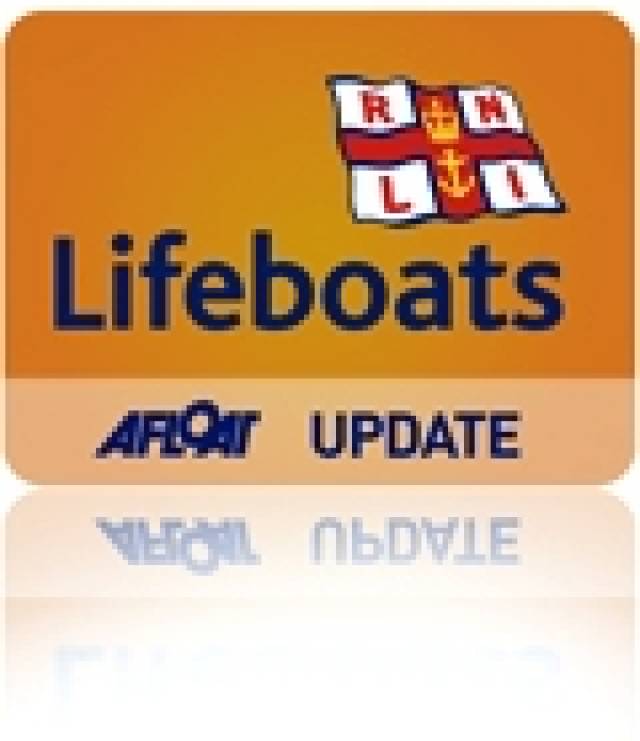#RNLI - Portaferry RNLI launched its inshore lifeboat yesterday afternoon (14 July) to the aid of a man who had suffered a head injury in one of the races during Portaferry Sailing Club’s annual regatta.
The lifeboat launched at 2.36pm and met up with the injured man a few minutes later on board his 12m yacht just off Marfield Bay in Strangford Lough, Co Down.
Weather conditions at the time were cloudy with good visibility, with a Force 2 to 3 southerly wind and calm seas.
After assessing the injured man’s condition, the volunteer crew transferred him into the lifeboat before taking him to Strangford Harbour, where he was then passed into the care of the Northern Ireland Ambulance Service.
Around the same time, RNLI Bangor was launching to investigate reports that children could have been on board an abandoned homemade raft spotted adrift off Ballymacormick Point on the edge of Belfast Lough.
Calm seas and fine weather allowed the lifeboat to proceed at full speed to the search area between Ballymacormick Point and Orlock Point.
After an extensive two-hour search of the area in conjunction with a fishing vessel and a coastguard rescue team, nothing was found.
The search was later terminated when enquiries found that there was a high probability that the raft had drifted from shore during high water.
Michael McKenna, volunteer RNLI helmsman who was involved in the search, took the opportunity to remind all children playing along the coast of the SAFE code: S for spot the dangers, A for always go with a friend, F for find and follow the safety signs and flags and E for Emergency - put up your hand and shout or ring 999/112 and ask for the coastguard.
It was the third callout for Bangor RNLI in three days, after a busy Saturday 12 July that began with a morning request from Belfast Coastguard to assist in the search for an inflatable dinghy.
The dinghy had been spotted by a concerned member of the public at the mouth of Larne Lough. The Bangor volunteer crew joined the Larne RNLI lifeboat in the search for the dinghy and its occupants. The former were quickly on scene and found the dinghy deserted with its engine down and a rope around the propeller.
The name painted on the dinghy hull was passed to Belfast Coastguard who were able to contact the owners. Thankfully, the owners reported that the dinghy had broken free from their vessel and that no one was on board.
The second call of the day came at 11:55am when the Bangor lifeboat launched to rescue four people from a motor boat that had broken down off the oil jetty at Cloghan Point, on the northern shores of Belfast Lough.
On scene, the RNLI crew quickly evaluated the situation and manoeuvred the lifeboat close to the broken-down vessel.
With relatively calm weather conditions, a tow rope was rigged and successfully passed to the motor boat, which was then towed the four miles back to the safety of Bangor Marina.
"Engine failure close to shore could lead to a life-threatening situation," said Bangor RNLI volunteer helmsman Iain Dobie.
"We always urge everyone going to sea to make sure their electrical systems and engine are well maintained and in good working order. A good anchor and chain should always be carried as part of essential safety equipment.
"We are glad the family on board this vessel are now safely ashore," he added.
































































